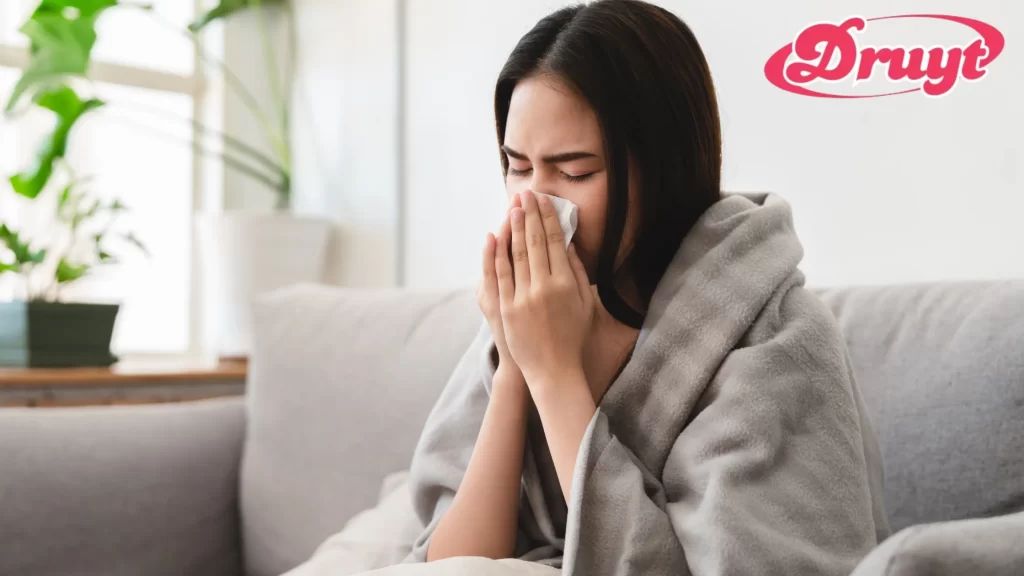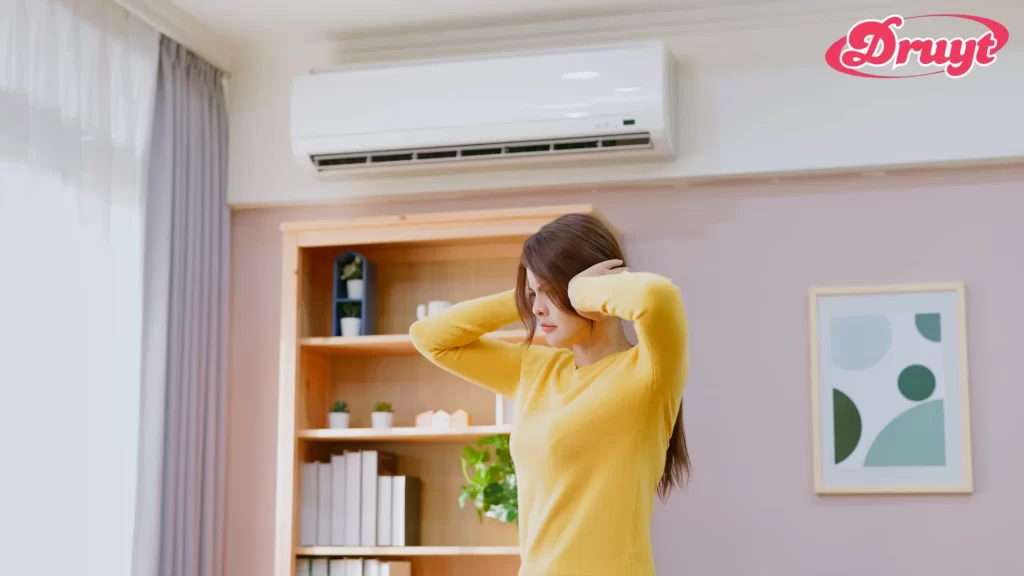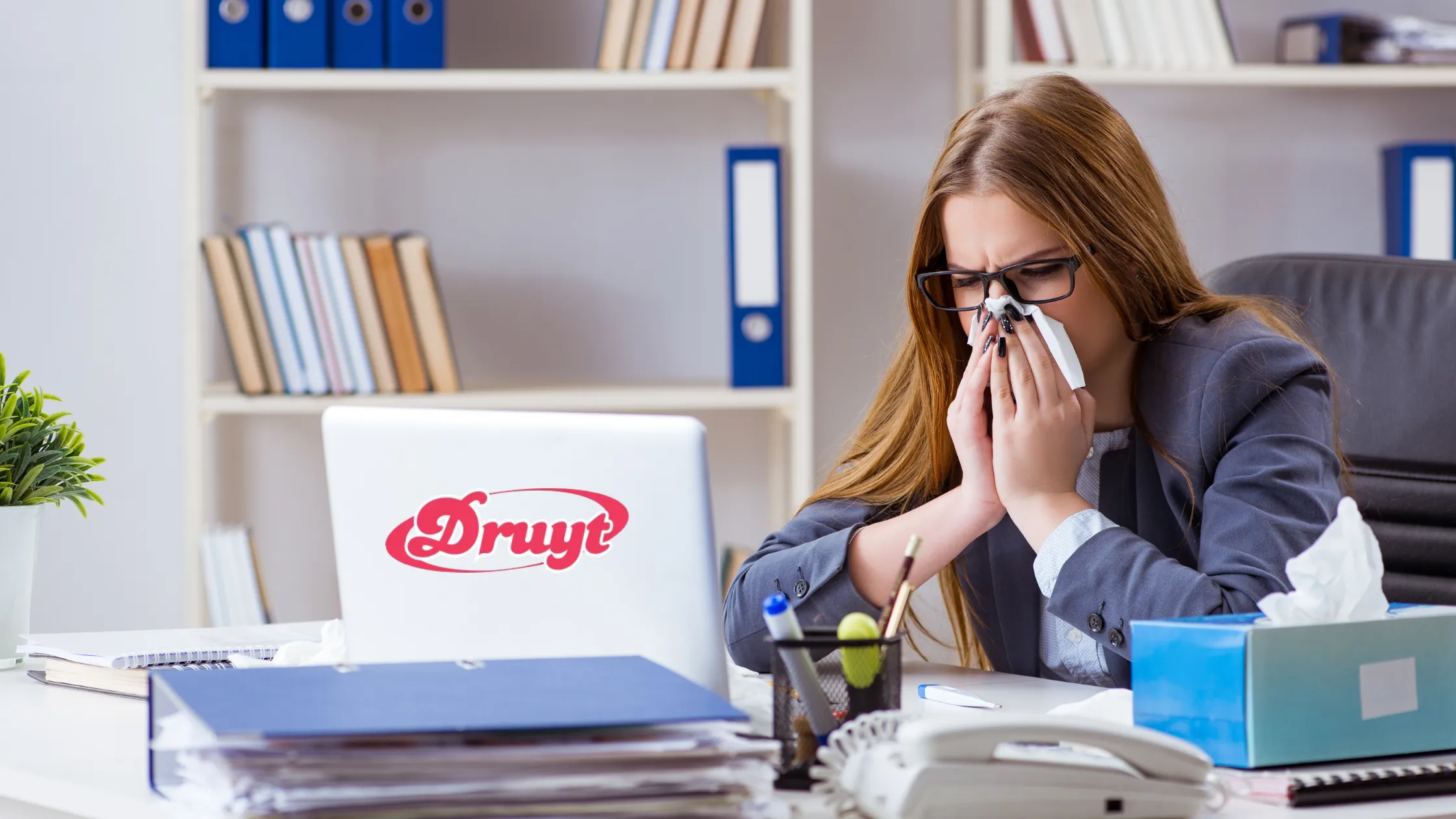Table of Contents
Have you ever wondered can AC cold make you sick? Many of us enjoy the cool relief air conditioning brings, especially during hot summer days. But as comforting as it may be, there’s growing concern about its impact on health. Air conditioning sickness is often thrown around when people experience symptoms such as a cough, throat irritation, and other health problems after prolonged exposure to cold air. The big question is: can AC cold make you sick? This article will explore the risks, symptoms, and ways to protect yourself from air conditioning sickness.
What Happens to Your Body in Cold Air?

Many people rely on air conditioning to escape the unbearable outdoors, but staying in cold air for too long can have side effects. Cold air from an AC system is usually drier than the natural air, which can lead to throat irritation and dry out the nasal lining. Prolonged exposure to cold temperatures can cause shivering as your body tries to maintain its core warmth. In addition, the rapid transition between indoor cold temperatures and outdoor heat can disrupt your body’s normal temperature regulation.
When your immune system is already weakened, cold air can worsen things. It can allow cold-causing viruses to thrive, leading to illnesses like the common cold or flu. So, does an AC cold make you sick? When these factors come into play, it certainly can when you’re exposed to sickness-inducing environments for long periods.
Also Read: Can You Die From Bed Bugs? Shocking Truth You Need to Know
Common Health Risks of Air Conditioning
Dry Skin and Dehydration
One common complaint about air conditioning is dry, irritated skin. AC systems work by removing moisture from the air, which can result in rough and itchy skin. Over time, it can even lead to dehydration. Though this isn’t necessarily an AC-related illness, it can affect overall health. To combat this, staying hydrated and moisturizing your skin is essential when spending long hours in air-conditioned spaces.
Respiratory Issues
Breathing in cold air for extended periods can lead to respiratory issues. Dry air can cause throat irritation, trigger coughs, and even worsen conditions like asthma. More concerning is that air conditioning units, especially those not cleaned regularly, can circulate sickness-inducing allergens like dust, mold, and pollen. This can lead to an allergic reaction, infection, or even worsen chronic illnesses such as asthma or bronchitis.
Experts note that dirty HVAC systems can create conditions that encourage the growth of bacteria and mold, contributing to what’s known as sick building syndrome. This can lead to symptoms such as headaches, dizziness, coughs, and allergy-like symptoms. So, if you’ve ever wondered, can an AC cold make you sick? The answer might be yes, especially if your HVAC system isn’t properly maintained.
Cold and Flu Symptoms

Though the cold air from an AC doesn’t directly cause colds or the flu, it can create an environment where cold-causing viruses spread more quickly. AC units can dry out your nasal lining, making it easier for viruses to enter your system and cause illnesses like the flu or common cold. So, can AC cold make you sick by increasing your risk of catching a cold? Especially in spaces where viruses can circulate easily.
In workplaces, shared air-conditioned spaces can make the spread of viruses more likely, leading to sickness symptoms such as sneezing, coughing, and fevers.
Also Read: How Much Does a Cavity Filling Cost? Discover the Shocking Truth
The Link Between Air Conditioning and Headaches
Many people experience headaches after sitting in air-conditioned spaces for too long. This can be due to the sharp contrast between the cold and warm air indoors. Freezing temperatures can cause blood vessels in your brain to constrict and expand, leading to headaches. The lack of fresh air circulation in these spaces can also cause low oxygen levels, contributing to feelings of dizziness and exhaustion.
If you’ve ever felt light-headed or had a headache after spending time in an air-conditioned room, you may have experienced the adverse effects of air-conditioning sickness. This further adds to the question: can AC cold make you sick?
Can AC Cold Make You Sick? The Role of Indoor Air Quality

One of the most significant risks of air conditioning sickness is indoor air quality. Air conditioning units can become a breeding ground for bacteria, mold, and other pollutants, especially when not regularly maintained. These sickness-inducing allergens can lead to sick-building syndrome, where people experience symptoms like headaches, throat irritation, fatigue, and even diarrhea from poor indoor air quality.
Improperly maintained HVAC systems can lead to conditioning-related sickness symptoms like colds and allergies and even more serious illnesses like severe coughs or respiratory infections. Regularly cleaning your air conditioner filters and ensuring proper ventilation can help prevent these problems.
Can an AC cold make you sick through poor air quality? The buildup of dust, mold, and bacteria in air conditioners can create an environment that leads to infections and worsens seasonal allergies. Maintaining a clean HVAC system is critical to avoiding these risks.
Seasonal Allergies and Air Conditioning
If you suffer from seasonal allergies, you might notice that spending too much time in air-conditioned spaces makes your symptoms worse. An unmaintained air conditioner can circulate allergens like pollen and dust, leading to allergy symptoms such as sneezing, coughing, and nasal congestion.
Allergy-like symptoms can also be triggered by prolonged exposure to cold air. So, can AC cold make you sick if you have seasonal allergies? Yes, as it can exacerbate your condition. Regular cleaning and proper air conditioner maintenance are essential to reduce allergens and prevent air conditioner allergies from worsening your allergies.
Severe Health Problems Linked to AC Cold
Prolonged exposure to cold temperatures from air conditioners can even lead to hypothermia. While this might sound extreme, mild hypothermia can develop in people who spend too much time in ultra-cold environments. Symptoms include shivering, confusion, and sweating. If your body temperature drops too low, it can cause long-term shivering and severe health problems.
The risks of developing hypothermia are even higher for those with certain health illnesses, such as heart disease or respiratory conditions. So, does an AC cold make you sick by lowering your body temperature? It certainly can if the temperature is set too low for comfort or if you’re exposed to low temperatures for extended periods.
Also Read: Can AC Cold Make You Sick? Experts Expose the Risk
Tips to Stay Healthy While Using Air Conditioning
To reduce the risk of air conditioning sickness and stay healthy while using AC, follow these simple tips:
- Keep Your Air Conditioner Clean: Regularly clean your AC filters and maintain your HVAC system. This will prevent the buildup of dust, mold, and bacteria that can lead to AC-related illnesses.
- Maintain a Moderate Temperature: Setting your AC to a mild temperature can prevent drastic temperature shifts that could lead to hypothermia and other health issues.
- Stay Hydrated: Air conditioning’s drying effects can cause throat irritation and dehydration. Drinking plenty of water is key to staying healthy in air-conditioned spaces.
- Use a Humidifier. Adding moisture back into the air can prevent dryness, which can contribute to sickness symptoms like dry skin and respiratory problems.
- Take Breaks from the Cold: If you feel cold or are experiencing shivering, step outside for some fresh air to warm up and balance your body temperature.
By following these tips, you can enjoy the benefits of air conditioning without the health risks associated with air conditioning sickness.

